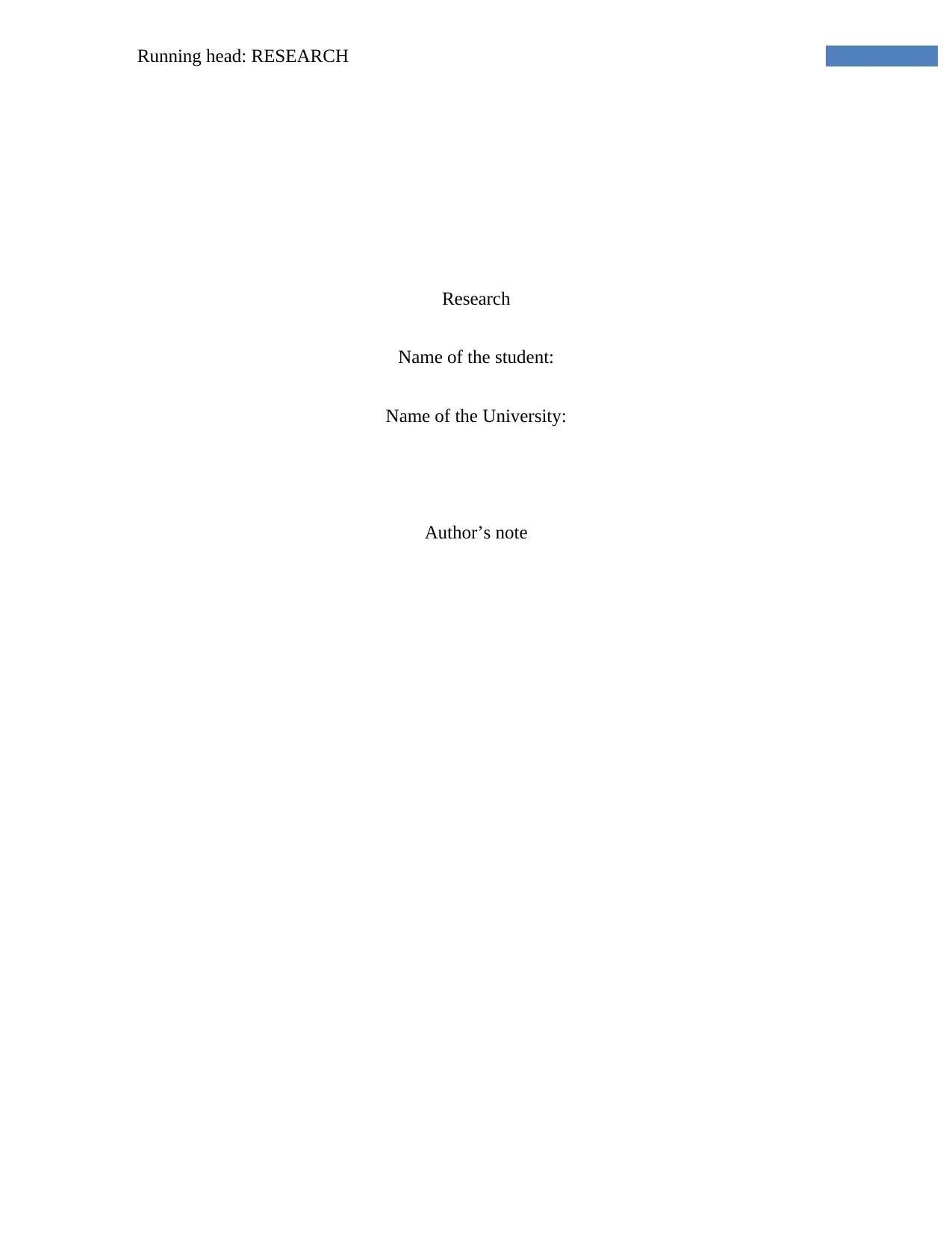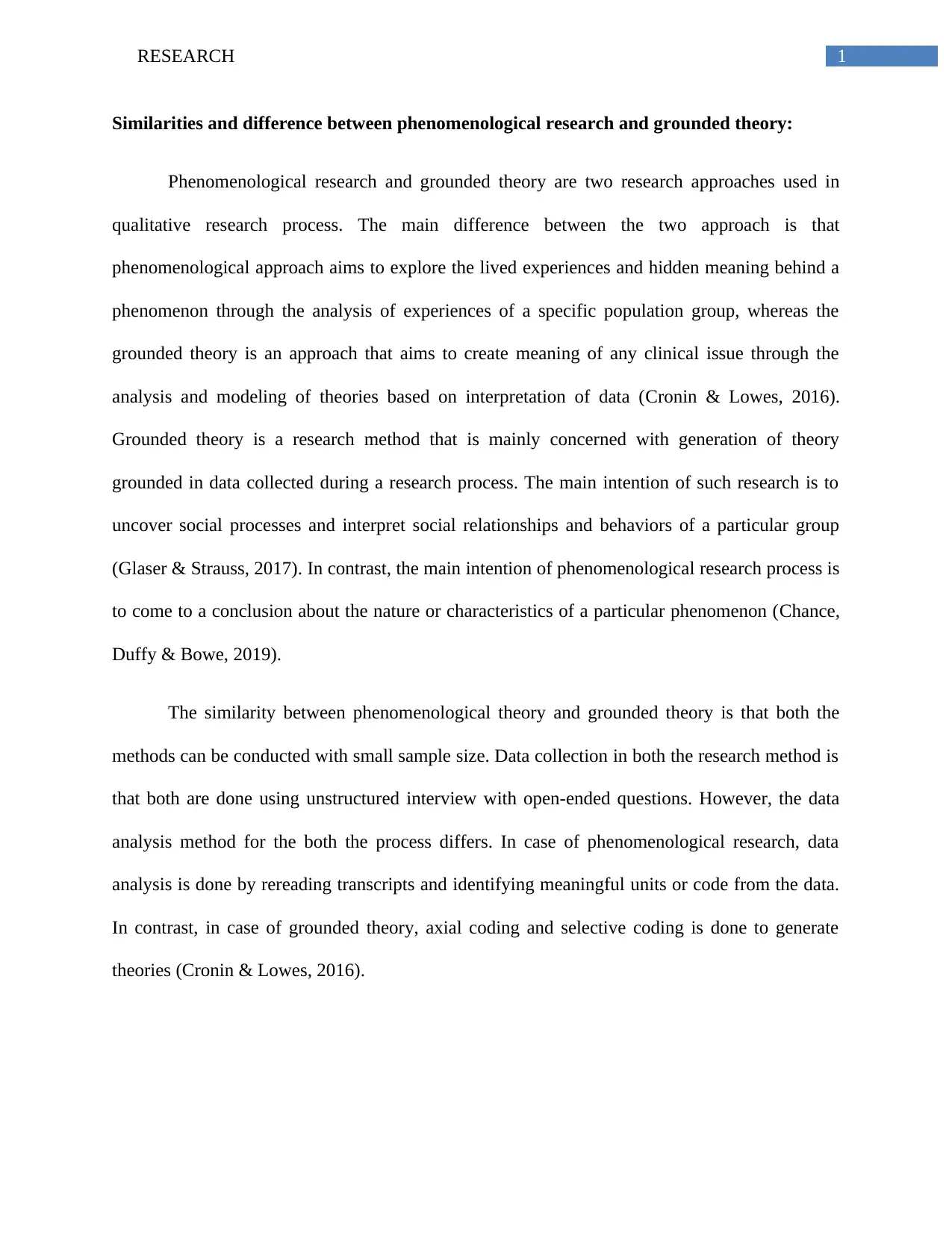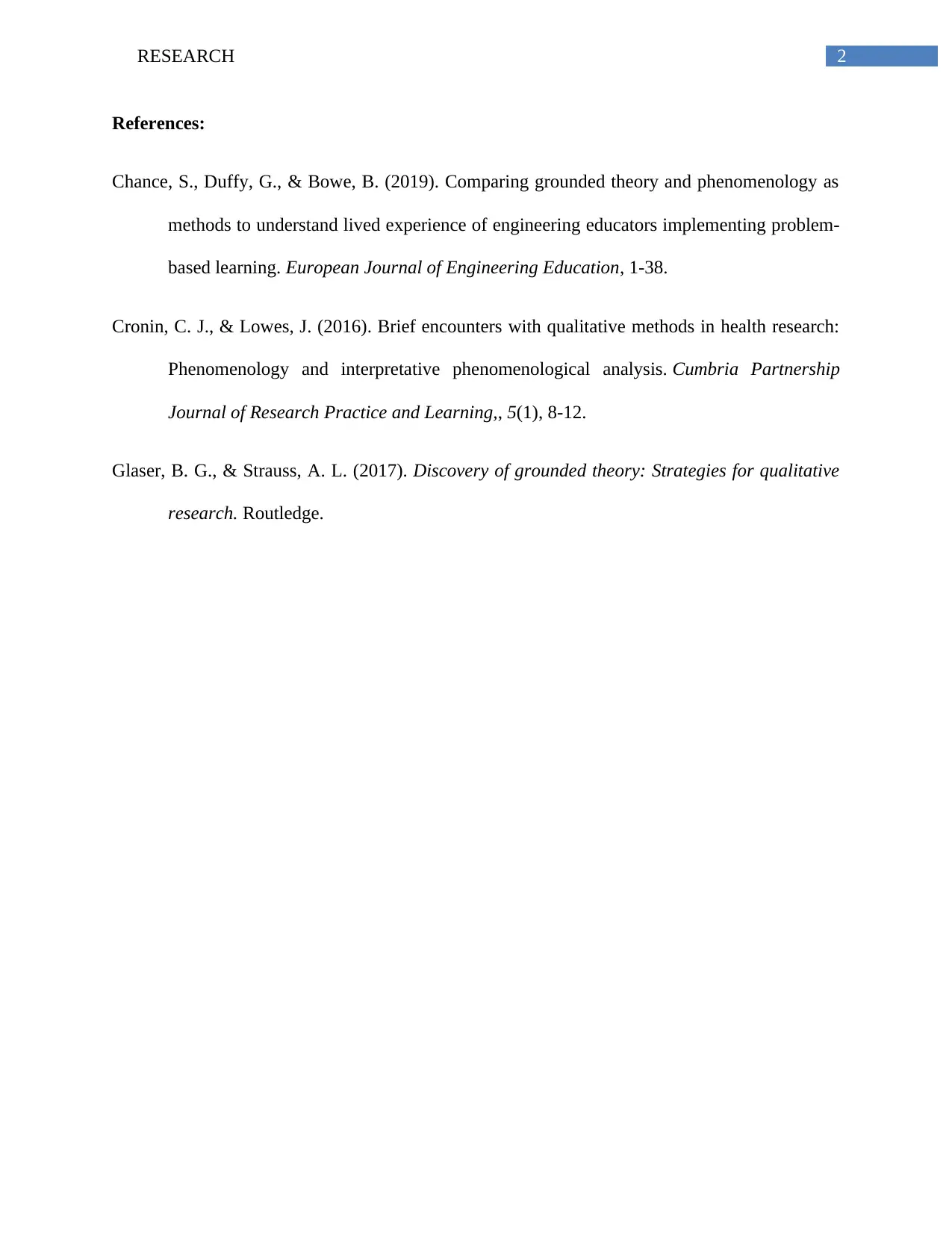Phenomenological Research and Grounded Theory: A Detailed Comparison
VerifiedAdded on 2022/08/27
|3
|423
|16
Essay
AI Summary
This essay provides a comparative analysis of phenomenological research and grounded theory, two prominent qualitative research approaches. It elucidates that phenomenological research aims to explore lived experiences and hidden meanings behind a phenomenon through the analysis of a specific population group's experiences. In contrast, grounded theory seeks to create meaning of any clinical issue through data interpretation and theory modeling. While both methods can be conducted with small sample sizes and utilize unstructured interviews with open-ended questions for data collection, their data analysis techniques differ significantly. Phenomenological research involves rereading transcripts and identifying meaningful units or codes, whereas grounded theory employs axial and selective coding to generate theories. The essay references key works in the field to support its comparison, highlighting the distinct intentions and processes of each research method.
1 out of 3










![[object Object]](/_next/static/media/star-bottom.7253800d.svg)